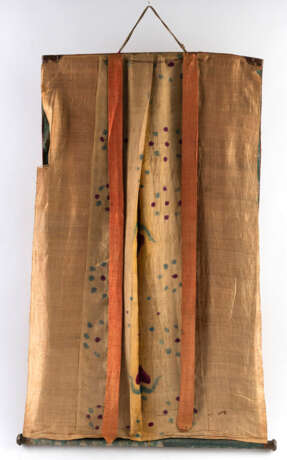ID 875245
Lot 47 | Der Yidam Cakrasamvara und weitere tantrische Gottheiten
Estimate value
€ 2 500 – 3 500
Tibet, 19. Jh.
61,5 x 41 (128 x 70) cm
| Address of auction |
Nagel Auktionen GmbH Neckarstrasse 189 - 191 70190 Stuttgart Germany | ||||||||||||||
|---|---|---|---|---|---|---|---|---|---|---|---|---|---|---|---|
| Preview |
| ||||||||||||||
| Phone | +49 (0)711 649 690 | ||||||||||||||
| Fax | +49 (0)711 649 69696 | ||||||||||||||
| Buyer Premium | 29,5% | ||||||||||||||
| Conditions of purchase | Conditions of purchase | ||||||||||||||
| Business hours | Business hours
|






